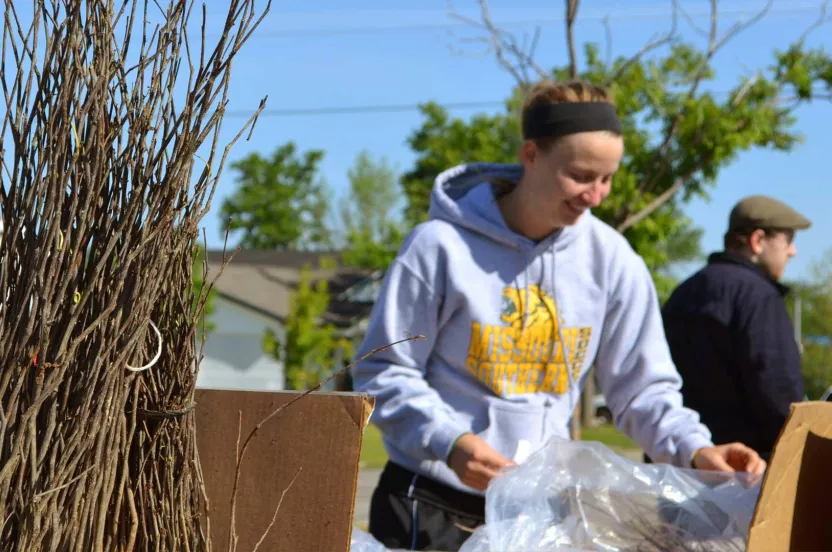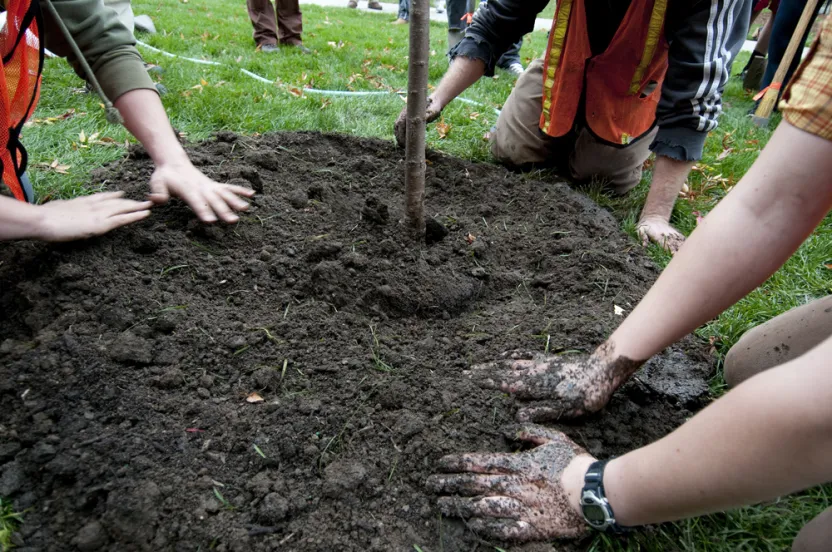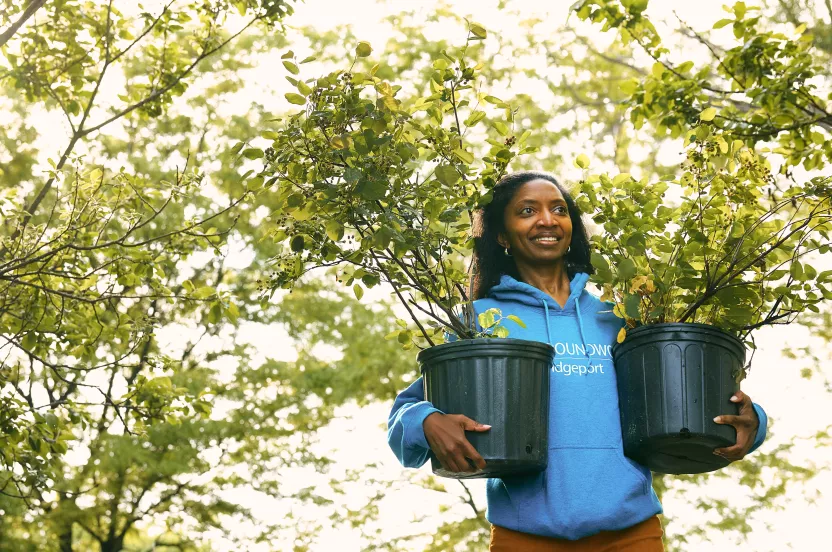Give before midnight on July 31 to double your impact where trees need us most. CHOOSE A PROJECT
Rooted in Resilience: Stories from the Lower Ninth Ward
Meet the forces behind a greener, stronger New Orleans.
June 16, 2025
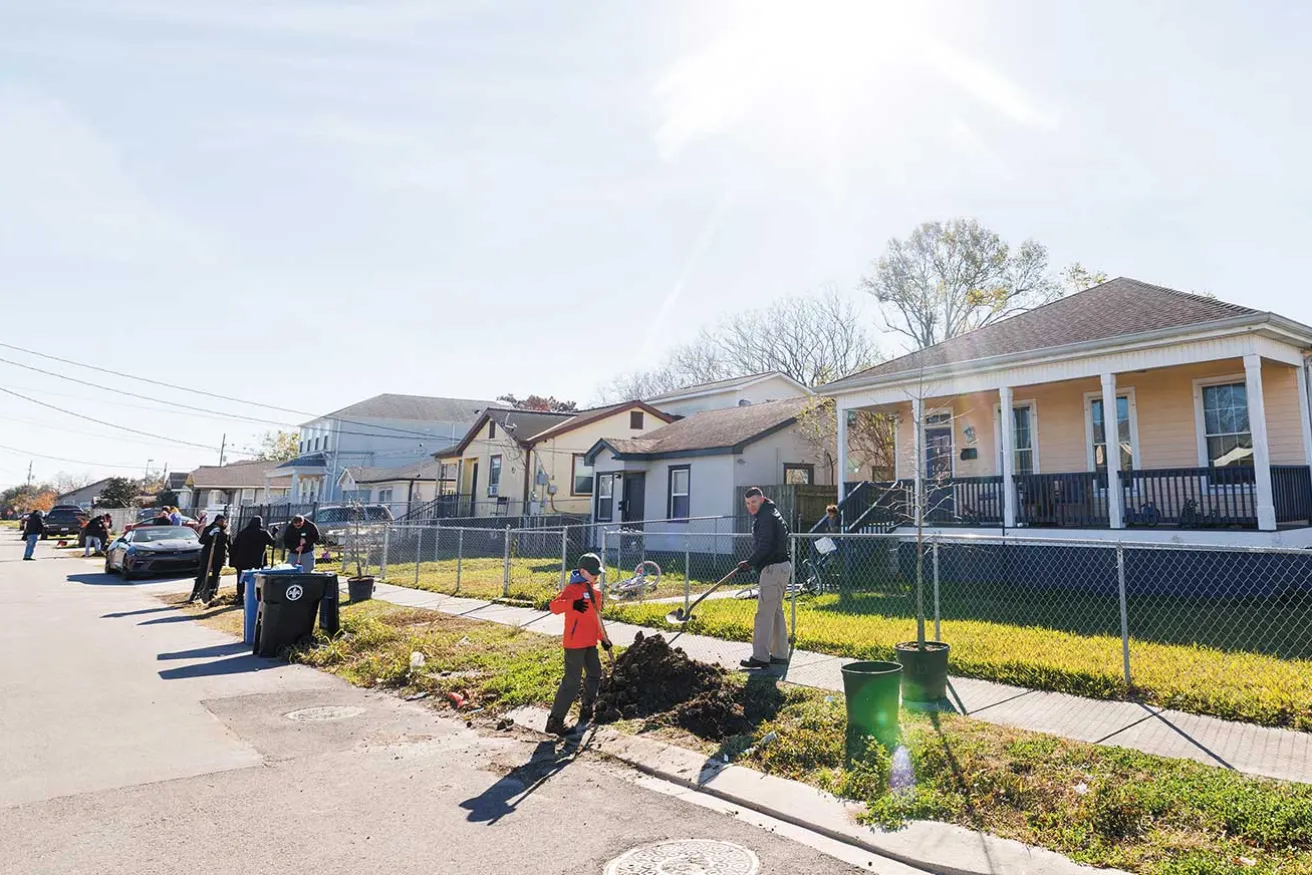
Nearly 20 years after Hurricane Katrina, passionate neighbors and nonprofits are planting trees — and hope — to help their community thrive again.
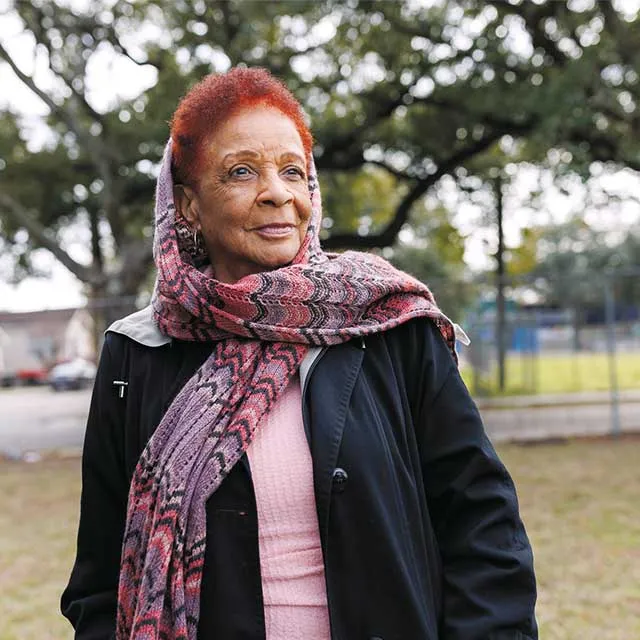
Cynthia Guillemet, President of the Lower Ninth Ward Homeownership Association
Cynthia Guillemet, a New Orleans resident and president of the Lower Ninth Ward Homeownership Association, is a pillar of resilience and community spirit.
Having grown up on Tupelo Street in the Lower Ninth, she’s deeply connected to the neighborhood, which was once full of life and resources. “We had everything we needed right in our community — grocery stores, barbershops, hairdressers, cleaners,” she recalls. “Everyone knew everyone. It was like one big family.”
But when Hurricane Katrina devastated New Orleans, the Lower Ninth Ward was hit hard by flooding that occurred when the levees broke. Many in the neighborhood evacuated and were unable to return. Cynthia, who had left just before the storm, struggled with the decision to come back after losing her husband and seeing the neighborhood in ruins.
“I didn’t know if I wanted to live here without the people,” she says.
But she returned in 2019, determined to help rebuild the community. And as she got involved with the Lower Ninth Ward Homeownership Association, doing outreach, talking to her neighbors, and working tirelessly to bring vitality back to the area, Cynthia found her way back, both physically and emotionally. “If they’re coming back and fighting for it, why shouldn’t I come back too?” she asked herself.
One of Cynthia’s main goals is to restore the natural beauty of the neighborhood. She recently had sweetbay magnolias planted outside her home, a small but significant step in a larger effort to bring back the trees that were lost during Hurricane Katrina. “Before the storm, the streets were lined with palm trees, oaks, and crapemyrtles,” she remembers. “They helped with flooding and provided shade.”
Cynthia is passionate about educating residents on the environmental importance of native trees, emphasizing their benefits for both the community and the climate. But her vision involves using trees to help create a neighborhood even better than the one she grew up in.
“I want to make this neighborhood better for the next generation,” she says. “I want them to experience what we had, but even more.”
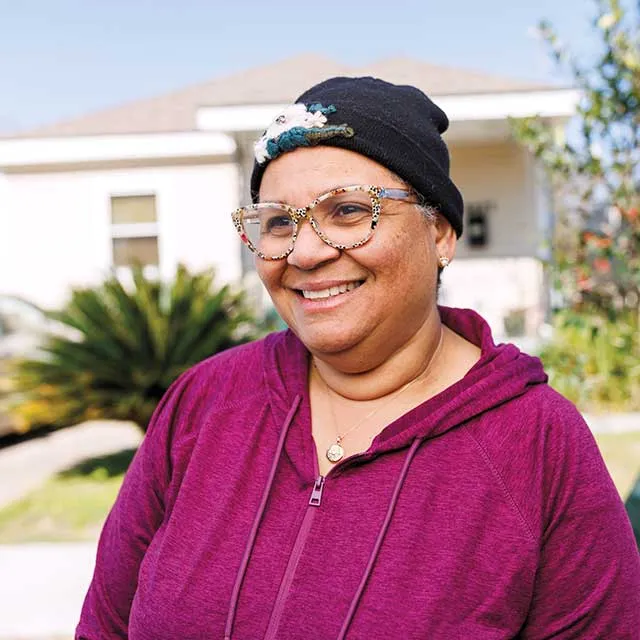
Tribble Condor, Lower Ninth Ward Homeowner
Tribble Condor, a proud lifelong resident of New Orleans’ historic Lower Ninth Ward, has seen her neighborhood endure and evolve through some of the toughest times. Her generational home, built by her grandfather and passed down through the family, symbolizes more than just a physical structure to Tribble; it represents generational wealth and a deep commitment to community.
Like many in her neighborhood, Tribble was heavily impacted by Hurricane Katrina, which devastated the area, leaving behind not just physical destruction but an emotional toll as well.
“Hurricane Katrina changed the makeup of the entire community, and we lost everything,” she says, recalling everything from the changed landscape to the loss of personal mementos, like cherished family Polaroid photos.
Yet, Tribble is a symbol of resilience. “It was important for me to come back,” she says, emphasizing how her return to the Lower Ninth Ward was about more than rebuilding her home. It was about healing the community. Tribble, deeply involved in neighborhood projects, such as the Lower Ninth Ward Homeownership Association, has worked diligently to help restore the area’s vitality.
During a recent tree planting event by Sustaining Our Urban Landscape (SOUL) on Martin Luther King Jr. Day, a savannah holly was planted on her property, filling her with hope.
“It makes me feel like my neighborhood is coming back,” she says.
Tribble believes in the power of trees, encouraging others in the neighborhood to capitalize on their benefits, like helping provide shade, reducing energy bills, and capturing water.
For Tribble, planting trees is about more than just beautifying her property — it’s about resilience and ensuring the community’s survival in the face of increasingly intense climate challenges. And every step forward is a small victory — a reminder that even in the face of loss, the roots of her beloved community are still growing strong.
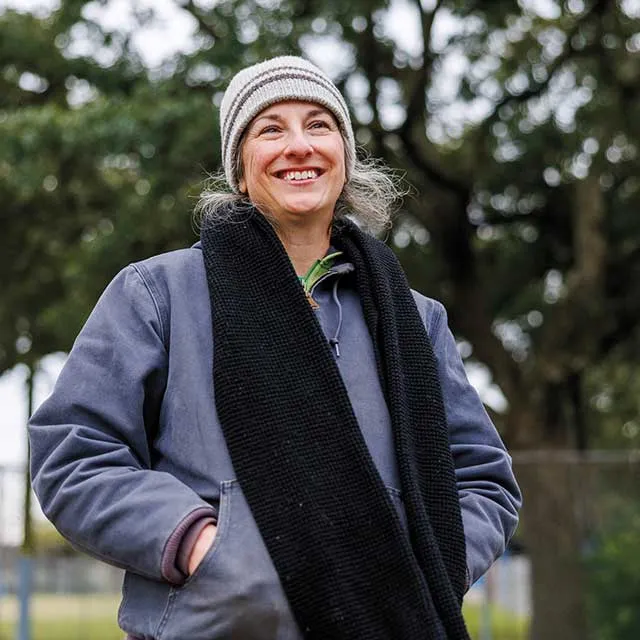
Susannah Burley, Founder and Executive Director of SOUL
At the Arbor Day Foundation, our mission is powered by a growing network of passionate individuals and best-in-class partners around the world, and Susannah Burley is a testament to our inspiring community. What started in 2016 as a grassroots effort in Susannah Burley’s guest room has blossomed into a vital force for environmental restoration. Susannah is the founder and executive director of Sustaining Our Urban Landscape (SOUL), a nonprofit on a mission to create a more resilient New Orleans through reforesting its tree canopy. To date, SOUL has planted nearly 11,000 trees, helping to transform neighborhoods impacted by Hurricane Katrina.
Through this work, Susannah exemplifies the power of showing up when it matters most — a trait that’s been critical to this city’s recovery after Hurricane Katrina, and one that makes our network of partners unmatched. The Arbor Day Foundation’s disaster recovery work can be traced back to the aftermath of Katrina. Thanks to the generosity of donors, like our Oak Society members, the Foundation can connect support and resources to organizations like SOUL across the country — wherever disaster recovery work is needed.
Using an opt-out approach, SOUL offers trees to every household, aiming to restore a balanced tree canopy block by block. But SOUL’s commitment goes beyond planting, and the organization prides itself on its staying power. It’s all about building trust and investing in these communities long after the immediate disaster recovery efforts conclude.
“People know we’re not going to leave,” Burley says. “It’s about working with these communities long-term and harnessing the incredible volunteer energy of people who keep coming back.”
Because of this thoughtful approach, locals feel seen and not forgotten. Streets that have been replanted no longer flood and energy bills are being reduced as homeowners get new, thriving trees in their yards.
Here’s to making a transformational impact — one tree at a time.
